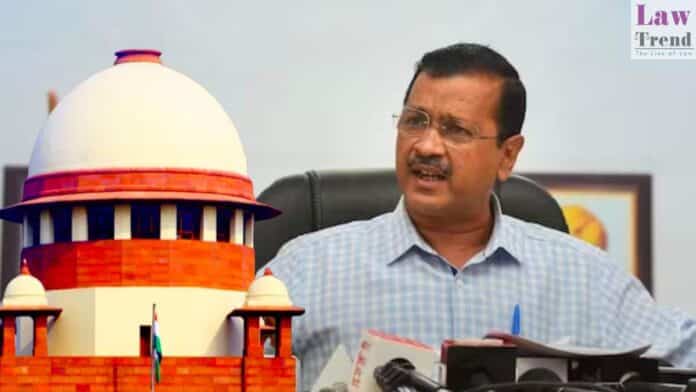The Centre and the National Capital Territory of Delhi (NCTD) government share a unique federal relationship and they need to cooperate with each other to enhance the spirit of federalism and democracy, the Supreme Court said on Thursday.
Observing that NCTD is not subsumed in the unit of the Union merely because it is not a State’,” a five-judge constitution bench headed by Chief Justice D Y Chandrachud said principles of federalism and democracy are interlinked and work together in synergy to secure to all citizens justice, liberty, equality and dignity and to promote fraternity among them.
The people’s choice of government is linked with the capability of that government to make decisions for their welfare, it said.
“In the spirit of cooperative federalism, the Union of India must exercise its powers within the boundaries created by the Constitution. NCTD, having a sui generis (unique) federal model, must be allowed to function in the domain charted for it by the Constitution.
“The Union and NCTD share a unique federal relationship. It does not mean that NCTD is subsumed in the unit of the Union merely because it is not a ‘State’,” said the bench, which also comprised Justices M R Shah, Krishna Murari, Hima Kohli and P S Narasimha.
The top court said in any federal Constitution, at a minimum, there is a dual polity, that is, two sets of government operate: one at the level of the national government and the second at the level of the regional federal units.
“These dual sets of government, elected by ‘We the People’ in two separate electoral processes, is a dual manifestation of the public will. The priorities of these two sets of governments which manifest in a federal system are not just bound to be different, but are intended to be different,” the bench said.
The apex court said while NCTD is not a full-fledged state, its Legislative Assembly is constitutionally entrusted with the power to legislate upon the subjects in the State List and Concurrent List.
“It is not a State under the First Schedule to the Constitution, yet it is conferred with power to legislate upon subjects in Lists II and III (state and concurrent list) to give effect to the aspirations of the people of NCTD. It has a democratically elected government which is accountable to the people of NCTD.
Also Read
“Under the constitutional scheme envisaged in Article 239AA(3), NCTD was given legislative power which though limited, in many aspects is similar to States. In that sense, with addition of Article 239AA (which deals with the special status of Delhi as UT) , the Constitution created a federal model with the Union of India at the centre, and the NCTD at the regional level,”said the bench.
The apex court said this is a asymmetric federal model adopted for NCTD.
“While NCTD remains a Union Territory, the unique constitutional status conferred upon it makes it a federal entity for the purpose of understanding the relationship between the Union and NCTD,” the bench said.
In a major vivtory for the AAP government, the apex court in a unanimous verdict ruled that the Delhi government has legislative and executive powers over services except for public order, police and land.




